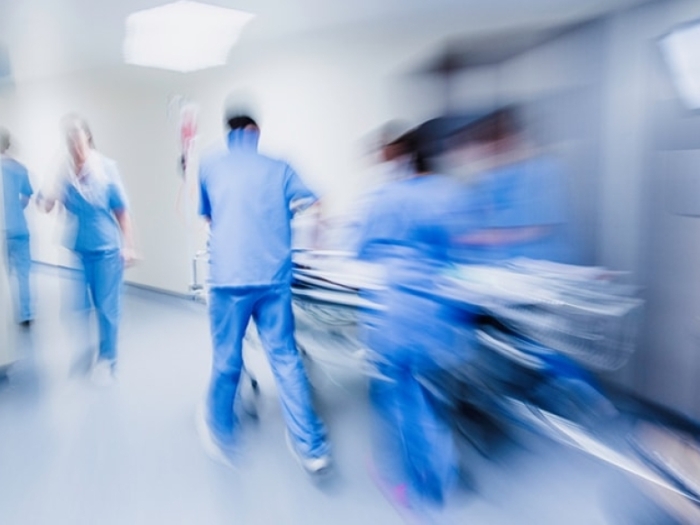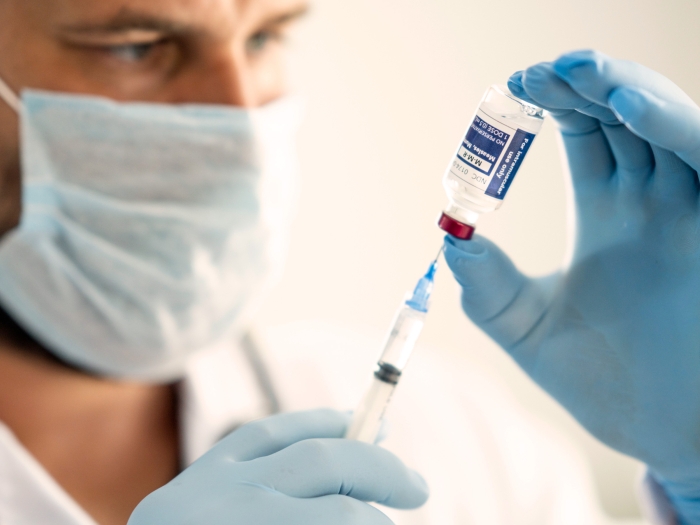Pneumonia is the top infection tied to cardiac surgery. A Michigan Medicine investigator who has researched the connection shares some preventive tips.
7:00 AM
Author |

Most patients undergoing open-heart surgery are aware that it may come with risks.
They might not think about a complication linked to the lifesaving operation: pneumonia.
MORE FROM MICHIGAN: Subscribe to our weekly newsletter
"Mortality and stroke are certainly high on a patient's list of things they would be concerned with — and reasonably so," says Donald Likosky, Ph.D., an associate professor of cardiac surgery at the University of Michigan Medical School. "But pneumonia, while less commonly discussed within the setting of cardiac surgery, is the most common type of infection."
An infection of the lungs, pneumonia affects 3 to 5 percent of such patients. When the infection occurs, it typically is contracted during the hospitalization that follows the surgery.
In a study published in July, Likosky and colleagues from the Michigan Society of Thoracic and Cardiovascular Surgeons Quality Collaborative examined why postoperative pneumonia affects this population. They analyzed data from thousands of open-heart surgery patients across 33 Michigan hospitals.
As a result, they gained a better understanding of how the associated illness might be prevented in those undergoing open-heart surgery.
Likosky explained some of the findings and how they apply to patients:
Avoiding pneumonia after open-heart surgery
Your health before surgery matters: A patient's condition is a good barometer of his or her ability to bounce back — and susceptibility to infection. The study identified triggers such as past lung problems, a long hospital stay prior to cardiac surgery and low ejection fraction (a measurement of how much blood the heart pumps out with each beat) among the issues that raise pneumonia risk. When possible, patients and physicians should discuss ways to address these health conditions before surgery.
Smokers need to quit — now: Smoking also is a key culprit, the study found. Given that smokers already have a heightened risk of pneumonia, that's no surprise. But abstaining even a few weeks before surgery may make a difference. The lungs can be strengthened in advance with a boost in physical activity such as daily walks and, when appropriate, an incentive spirometer, which is a small plastic device used to help improve lung function.
SEE ALSO: 6 Things You Need to Know About Pneumonia
Extended intubation can hurt: To help patients breathe during cardiac surgery, they'll be intubated with a ventilator — a measure with caveats. Notes Likosky: "The longer the time a patient is intubated, the greater chance they have of developing pneumonia." There is increased awareness within hospitals of the need to reduce, when possible, the duration that a patient is intubated. Bettering one's health before surgery may also help reduce that length.
Your blood might offer insight: Patients who arrive with leukocytosis (elevated white blood cell counts) are at a particular risk of contracting postoperative pneumonia, the study found. That's because leukocytosis can be a sign that the body is mounting an immune response against a pathogen or other challenge, Likosky and his colleagues say. Doctors, the study's authors note, might consider postponing less-urgent cardiac surgeries to allow further investigation.
Mobility after surgery is essential: It's a crucial directive after many operations, heart related or otherwise: Be up and moving as soon as physically possible. And just as doctors advise patients to "train" their bodies before they enter the hospital, the physical benefits can help spur general healing and avert respiratory illness during one's stay. That's why nurses and other members of the health care team will assist the patient in light, safe movement activities.
The study was funded by the Agency for Healthcare Research and Quality.

Explore a variety of healthcare news & stories by visiting the Health Lab home page for more articles.

Department of Communication at Michigan Medicine
Want top health & research news weekly? Sign up for Health Lab’s newsletters today!





